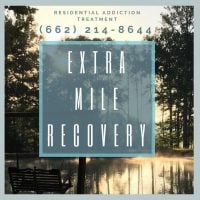Region III Chemical Dependency and Addiction Services
Drug Rehab Center in Tupelo, Mississippi
- Substance Abuse
- Opioid Addiction
- Dual Diagnosis
- Drug Addiction
- Alcoholism
Region III Chemical Dependency and Addiction Services is a facility in Tupelo, MS providing compassionate and comprehensive treatment services for individuals struggling with alcoholism, opioid addiction, and other substance abuses, as well as prevention services for families and loved ones.
About Region III Chemical Dependency and Addiction Services in Mississippi
Region III Chemical Dependency and Addiction Services located in Tupelo, Mississippi is a treatment facility that specializes in helping individuals who are struggling with alcohol and drug addiction. They provide a range of services to assist those looking to get sober and overcome substance abuse. The facility offers detoxification services to support individuals in safely withdrawing from drugs or alcohol. They also offer various levels of care, including inpatient and outpatient programs, as well as intensive outpatient and residential treatment options. In addition, Region III Chemical Dependency and Addiction Services accepts private health insurance, making their services more accessible to those seeking help.
Region III Chemical Dependency and Addiction Services in Tupelo, Mississippi provides a comprehensive range of services and treatment methods to address addiction and substance abuse. Their programs are designed to support individuals facing various challenges such as alcoholism, dual diagnosis, opioid addiction, and substance abuse. Through their inpatient and outpatient programs, they offer a supportive and structured environment for individuals to receive the necessary care and therapy. The facility also provides a detoxification program, ensuring a safe and comfortable transition from substance dependence. Additionally, Region III offers sober living and halfway house options, allowing individuals to continue their recovery journey in a supportive community. Overall, Region III Chemical Dependency and Addiction Services is dedicated to helping individuals achieve sobriety and regain control of their lives.
Genders
Ages
Modality
Additional
Conditions and Issues Treated
Substance Abuse Treatment is important when getting sober, as it helps addicts learn the skills they need to live a clean life. There are many different kinds of recovery treatment, including but not limited to medication-assisted therapy, behavioral therapeutic approaches, self-help groups, and counseling. Each treatment has its benefits that help addicts recover.
Counseling can help addicts learn the skills they need to live sober lives. It can be used to treat underlying mental health issues, like depression or anxiety, that could lead to relapse. Counseling can also help people find work, deal with family problems, and learn to manage living without drugs.
With so many people addicted to opioids, we need to help those who want to quit. The cycle begins when opioid addicts take opioids for a painful injury. When someone starts taking their medication differently or in excess, it means they’re addicted and at risk of overdosing.
In , detoxing from these types of treatments is the most effective way to beat this. Most facilities begin with medical assistance and then provide counseling services; rehabilitation follows after successful treatment.
Dual diagnosis refers to someone who has both an addiction and a mental or emotional illness. Dual diagnosis treatment includes therapy for both issues simultaneously, allowing for effective treatment of either.
Sometimes people with addiction disorders also have co-occurring disorders like depression, anxiety, bipolar disorder, etc. These require specialized treatment programs that address both drug and alcohol addiction as well as psychiatric illnesses. Some rehabilitation facilities provide patients with co-occurring disorders a program with highly integrated services and a clean, distraction-free environment.
Levels of Care Offered
This center offers a variety of custom treatment tailored to individual recovery. Currently available are Detox, Drug Rehab, Dual-Diagnosis, Inpatient, Intensive Outpatient, Outpatient, Residential, Sober-Living / Half-Way, with additional therapies available as listed below.
Detox is an integral part of recovery and often very hard. Detoxification is the process of letting the body remove the drugs in it. It addresses the physical aspect of addiction. Detox from drugs can be unsafe as the patient undergoes withdrawal symptoms that range from headaches, vomiting, body aches to seizures and cardiac arrests. The main purpose of detox is to keep the drug users comfortable as the drugs leave their system.
Quitting cold turkey is not recommended and can lead to many issues. Detox is best done under medical supervision so that a team of experts can monitor the side effects and complications. Detox, alone, does not guarantee sobriety as the underlying psychological issues are not addressed.
Inpatient treatment is a form of recovery used in drug rehab. Inpatient recovery offers individual therapy, groups, and family therapy to ensure that the addict has the best recovery possible. A variety of treatments are provided in this type of recovery, depending on what treatment the addict needs at that particular time.
The length of inpatient addiction treatment depends on the addict and their addiction. Inpatient rehabilitation can last anywhere from 30 days to 90 days, depending on how severe the drug abuse is. Inpatient rehab is a costly drug treatment, costing anywhere from $30k- to $60k. However, insurance often offers help in covering these costs.
An intensive outpatient program (IOP) is effective for drug rehab, but it can take six months to several years to complete. It’s the most popular type of drug rehab program in the United States. One example of a successful IOP success story is actor and comedian Chris Rock, sober since 1990.
An IOP allows participants to spend nights at home while attending meetings throughout the day. It’s a good way for drug addicts to make a recovery plan in an outpatient setting while still supporting their loved ones.
Alcohol or drug addiction, or co-occurring disorders, are treated in an outpatient program. The patient must attend therapy and other programs at the facility but can return home each night.
Outpatient treatment allows recovering addicts to live at home while receiving addiction treatment. Outpatients can attend group sessions for a few hours per week. Outpatients may also continue to work full time and study/attend school without interruption if they choose.
Sober living homes, offered by rehabilitation facilities, help recovering addicts transition back into society. These homes have rules and regulations that must be followed to maintain sobriety. They also provide resources such as vocational training and therapy sessions.
Residential treatment programs are those that offer housing and meals in addition to substance abuse treatment. Rehab facilities that offer residential treatment allow patients to focus solely on recovery, in an environment totally separate from their lives. Some rehab centers specialize in short-term residential treatment (a few days to a week or two), while others solely provide treatment on a long-term basis (several weeks to months). Some offer both, and tailor treatment to the patient’s individual requirements.
Therapies & Programs
Attending group therapy at Region III Chemical Dependency and Addiction Services in , is a useful way for those seeking sobriety to realize they aren’t the only one going through it.
This is when a group of people on different recovery phases get together and talk about what they’re going through, their triggers, successes, and failures. This can include alternative types of therapies too! Group therapy may occur on an outpatient or inpatient basis with groups that have no pre-existing relationships outside the session, unlike support groups where everyone already knows each other beforehand.
Payment Options Accepted
For specific insurance or payment methods please contact us.
Is your insurance accepted?
Ask an expert, call (888) 674-0062
Additional Details
Specifics, location, and helpful extra information.
Tupelo, Mississippi 38804 Phone Number(662) 987-4260 Meta DetailsUpdated November 25, 2023
Staff Verified
Region III Chemical Dependency and Addiction Services Patient Reviews
There are no reviews yet. Be the first one to write one.
Tupelo, Mississippi Addiction Information
Mississippi has one of the highest rates of drug and alcohol abuse-related deaths. Approximately 350,000 residents use illicit drugs every year while another 108,000 abuse alcohol. In one year, doctors in Mississippi prescribed 76.8 opioid prescriptions for every 100 persons. This compares to the national rate of 51.4 prescriptions.
Drug-related deaths accounted for over 20% of accidental deaths in Tupelo, Mississippi last year. In 2016, there were over 2,000 admissions to drug and alcohol treatment facilities. Additionally, there were over 600 arrests for drug-related offenses in Tupelo in 2016. The best treatment option for an individual will depend on their unique situation and needs.
Treatment in Nearby Cities
- Purvis, MS (218.2 mi.)
- Woodville, MS (264.9 mi.)
- Hattiesburg, MS (204.4 mi.)
- Water Valley, MS (54.7 mi.)
- Waveland, MS (276.3 mi.)
Centers near Region III Chemical Dependency and Addiction Services



The facility name, logo and brand are the property and registered trademarks of Region III Chemical Dependency and Addiction Services, and are being used for identification and informational purposes only. Use of these names, logos and brands shall not imply endorsement. RehabNow.org is not affiliated with or sponsored by Region III Chemical Dependency and Addiction Services.
